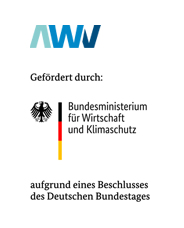Was ist ZUGFeRD?
ZUGFeRD ist ein branchenübergreifendes Datenformat für den elektronischen Rechnungsdatenaustausch, das vom Forum elektronische Rechnung Deutschland (FeRD) – mit Unterstützung des Bundesministeriums für Wirtschaft und Energie – erarbeitet wurde. Das ZUGFeRD-Datenformat basiert auf der Richtlinie 2014/55/EU vom 16. April 2014 über die elektronische Rechnungsstellung bei öffentlichen Aufträgen und auf der am 28. Juni 2017 veröffentlichten Norm EN16931. Zudem werden die Cross-Industry-Invoice (CII) von UN/CEFACT und die ISO-Norm 19005-3:2012 (PDF/A-3) ab ZUGFeRD 2.0 berücksichtigt.
Die Einsatzgebiete dieses hybriden Rechnungsformats sind vielfältig. Sowohl im B2B-, im B2G- und im B2C-Geschäftsverkehr kann ZUGFeRD eingesetzt werden.
Inhaltliche Identität
Als hybrides Datenformat integriert ZUGFeRD in einem PDF-Dokument (PDF/A-3) strukturierte Rechnungsdaten im XML-Format. Das heißt, der Rechnungsversand erfolgt grundsätzlich in Form eines PDF-Dokuments, welches die Sichtkomponente der Rechnung darstellt. Gleichzeitig wird ein inhaltlich identisches Mehrstück derselben Rechnung (XML) innerhalb des PDF mitversandt, so dass die elektronische Verarbeitung der Rechnung über die strukturierten Rechnungsdaten - nach Implementierung in das unternehmensspezifische Softwaresystem - problemlos möglich ist. PDF und XML müssen die Vorgaben des § 14 Abs. 4 Umsatzsteuergesetz (UStG) berücksichtigen, um inhaltlich identische Mehrstücke derselben Rechnung darzustellen. Da die Finanzverwaltung keine konkreten Prüfpflichten bzw. Kontrollmaßnahmen für dieses Verfahren festgelegt hat, ist dem Rechnungssender und dem Rechnungssteller zu empfehlen, eigene Prüfmechanismen zur Sicherstellung der inhaltlichen Identität der beiden Rechnungen einzuführen. Neben den gesetzlichen Regelungen sind auch die Grundsätze zur ordnungsgemäßen Führung und Aufbewahrung von Büchern, Aufzeichnungen und Unterlagen in elektronischer Form sowie zum Datenzugriff (GoBD), zuletzt vom 28. November 2019, zu beachten.
Aufbewahrung
Das Umsatzsteuergesetz sieht vor, dass Rechnungen zehn Jahre aufzubewahren sind (§ 14b Abs. 1 S. 1 UStG). Elektronische Rechnungen müssen gemäß den jeweils gültigen Grundsätzen zur ordnungsgemäßen Führung und Aufbewahrung von Büchern, Aufzeichnungen und Unterlagen in elektronischer Form sowie zum Datenzugriff (GoBD) aufbewahrt werden. Elektronische Handels- oder Geschäftsbriefe und Buchungsbelege müssen in dem Format aufbewahrt werden, in dem Sie empfangen werden (Randziffer 131 der GoBD vom 28. November 2019). D. h. elektronische Rechnungen sind originär elektronisch aufzubewahren und müssen maschinell auswertbar sein (Randziffer 128 GoBD vom 28. November 2019). Eine Aufbewahrung elektronischer Rechnungen in ausgedruckter Form ist nicht möglich.
Wird die elektronische Rechnung per E-Mail übersandt, so ist die E-Mail selbst als reines Transportmittel der Rechnung (= Briefumschlag der elektronischen Rechnung) grundsätzlich nicht aufzubewahren, es sei denn, die E-Mail enthält der Rechnung zugehörige, aufbewahrungspflichtige Informationen.
Rechnungserstellung mit ZUGFeRD
ZUGFeRD ist vereinfacht gesagt eine Art Übersetzung der europäischen rechtlichen Anforderungen (EU-Richtlinie 2014/55/EU, Europäische Norm 16931) und stellt keine Anwendungssoftware dar. Diese Übersetzung bzw. Strukturbeschreibung eines Datensatzes und die damit in Verbindung stehenden Abhängigkeiten müssen in die unternehmenseigene Software implementiert werden.
Die Einbindung kann z. B. über Standardsoftwaresysteme (d. h. ERP- oder EDI-Systeme) erfolgen oder hauseigene IT-Abteilungen binden ZUGFeRD in ihre Individualsoftware eigenständig ein. Viele Buchhaltungs- und ERP-Softwaresysteme unterstützen ZUGFeRD bereits.

